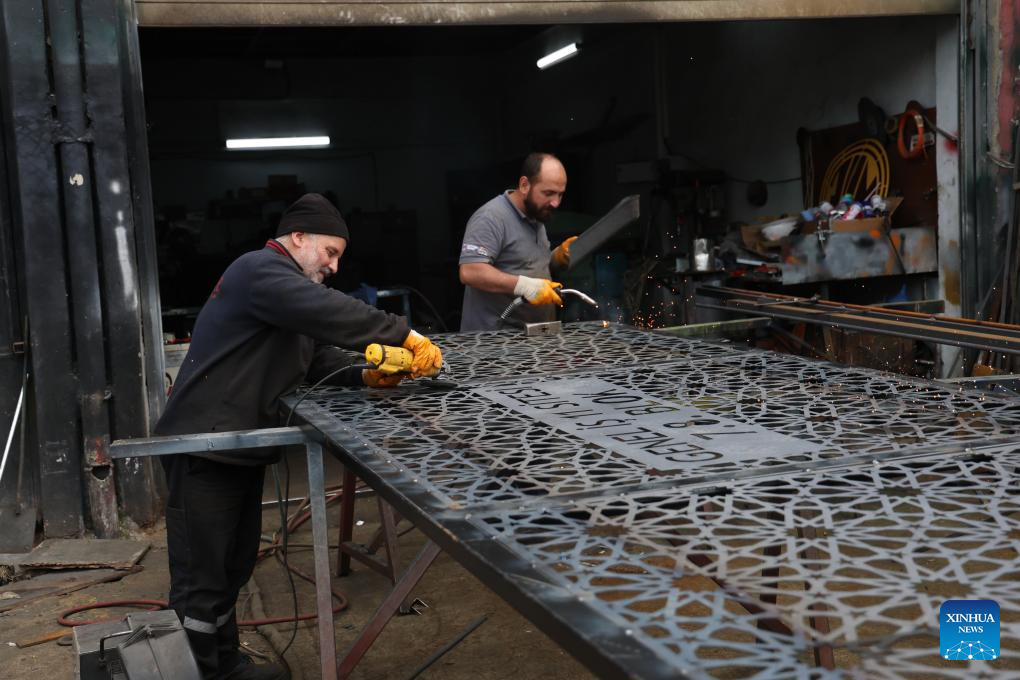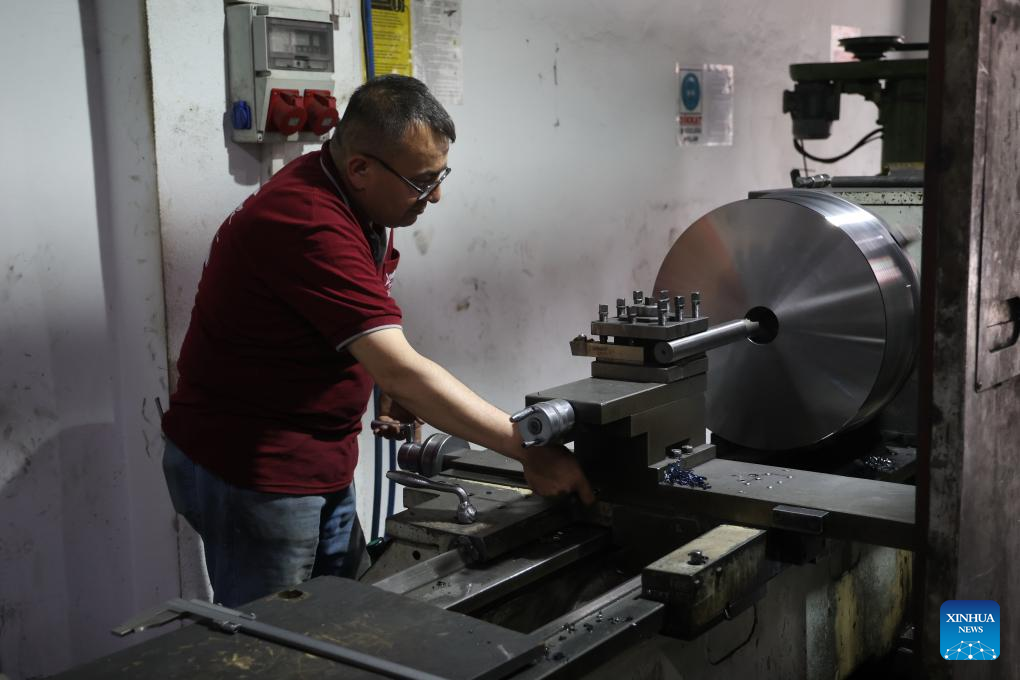Roundup: Türkiye launches credit scheme to ease burden on firms hit by high costs

A man works at a small company in Ankara, Türkiye, on June 3, 2025. The Turkish government has unveiled a financial support scheme to stimulate lending to small and medium-sized enterprises (SMEs) struggling with rising costs. (Mustafa Kaya/Handout via Xinhua)
ANKARA, June 3 (Xinhua) — The Turkish government has unveiled a financial support scheme to stimulate lending to small and medium-sized enterprises (SMEs) struggling with rising costs.
Turkish Treasury and Finance Minister Mehmet Simsek announced on May 23 that around 770 million U.S. dollars in loans would be made available through the Credit Guarantee Fund (CGF), a public institution.
Under the new scheme to be operational in June, up to 85 percent of each loan will be covered, allowing eligible businesses to borrow for both day-to-day operations and investment-related expenses.
“Supporting our SMEs, which are vital for production and employment, remains a key priority,” the Turkish minister said on his social media X account.
This support mechanism came at a critical time, as the Turkish manufacturing sector continues to struggle under tight lending conditions implemented to combat high inflation.
Currently, annual inflation stands at 35.4 percent, according to official data announced on Tuesday. This marks the 12th consecutive month of deceleration, down from over 75.4 percent in May 2024.
Senol Babuscu, a professor of finance at Ankara’s Baskent University, explained that the CGF is a program revived from a decade ago, one that enables lenders to share credit risk with the Treasury.
“Business loan interest rates are currently above 50 percent; therefore, the industry is having serious challenges in accessing credit to stay afloat amid high production costs,” he told Xinhua.
Given the prevailing high-interest climate and restricted access to finance, Babuscu said that the CGF scheme could provide significant relief to businesses struggling with mounting expenses.
In Türkiye, SMEs form the backbone of the business sector and dominate nearly all segments, including manufacturing, trade, services, and agriculture, according to data from the Turkish Statistical Institute.
Moreover, they contribute to more than half of the country’s GDP and account for over 70 percent of national employment.
In Babuscu’s view, SMEs are critically important for the national economy, and their well-being directly reflects the broader economic landscape.
However, the tight monetary policy, which was adopted nearly two years ago to combat runaway inflation, has placed considerable pressure on these companies. Faced with capital drain, many have found it increasingly difficult to pay suppliers, retain employees, or invest in growth.
In April, following a brief easing cycle that came after a year of aggressive interest rate hikes, Türkiye’s central bank once again raised its main interest rate from 42.5 to 46 percent.
The Istanbul Chamber of Industry, which compiles an annual list of Türkiye’s 500 largest industrial enterprises, announced last week that manufacturers were under mounting financial strain, as nearly all profits were consumed by financing costs.
Erdal Bahcivan, head of the chamber, said, “Industrialists spent their earnings on financing” amid a noticeable drop in profitability.
Turkish President Recep Tayyip Erdogan reaffirmed last week his long-standing opposition to high interest rates. Nevertheless, he emphasized that the economic programme initiated in mid-2023 to tackle inflation and the cost-of-living crisis will be maintained.
Looking ahead, the central bank’s next rate-setting meeting is scheduled for June 19.
In the meantime, the new financial support scheme has garnered backing from the business community and industry organizations, which view it as a potential solution to the long-standing credit access problems faced by SMEs.
“We welcome this decision to support SMEs, which are vital for the economy,” Ankara Chamber of Industry head Seyit Ardic told Xinhua.
While expressing support for the scheme, Ardic also urged economic policymakers to “put into motion additional mechanisms to increase credit flow to manufacturers to boost productivity and employment.”
Mustafa Gultepe, president of the Turkish Exporters Assembly, also welcomed the initiative, noting that the average cost of credit in Türkiye has surpassed 50 percent.
“The CGF fund’s revival reflects the government’s determination to back industrial production and maintain economic competitiveness, even as it pursues disinflation,” said Gultepe. ■

People work at a small company in Ankara, Türkiye, on June 3, 2025. The Turkish government has unveiled a financial support scheme to stimulate lending to small and medium-sized enterprises (SMEs) struggling with rising costs. (Mustafa Kaya/Handout via Xinhua)

A man works at a small company in Ankara, Türkiye, on June 3, 2025. The Turkish government has unveiled a financial support scheme to stimulate lending to small and medium-sized enterprises (SMEs) struggling with rising costs. (Mustafa Kaya/Handout via Xinhua)


